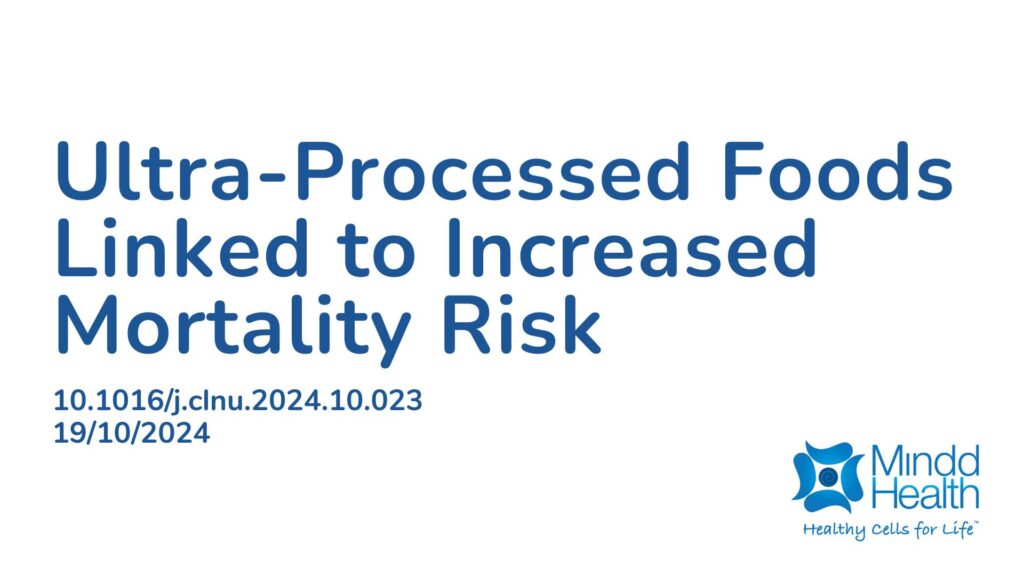Summary:
Ultra-processed foods (UPF) are products made through industrial processes, containing many additives and little whole foods. They are convenient, affordable, and heavily marketed, making up a significant portion of Western diets, with US intake at nearly 60% of total energy. High UPF consumption correlates with poorer diet quality and health issues. Studies have linked UPF intake with higher all-cause mortality rates, although findings on cause-specific mortality are mixed and incomplete. This study aimed to explore how UPF intake relate to mortality risks over 23.3 years. The researchers analyzed data from 27,670 participants, finding that higher UPF intake was nonlinearly associated with increased all-cause mortality risk, particularly in females. Each increase in UPF intake was linked to higher risks of premature mortality, cardiovascular disease, and respiratory disease mortality. These findings show the potential health risks associated with UPF consumption, warranting further investigation into specific types of health condition.
Abstract:
Background & aims: Epidemiological evidence on ultra-processed food (UPF) and cause-specific mortality remains limited and mixed. Molecular mechanisms underlying UPF intake and mortality remain unexplored. This study aimed to evaluate the associations between UPF consumption, metabolic signatures, and all-cause, premature, and cause-specific mortality. Methods: This study included 27670 participants (mean age 58.1 years) from the Malmö Diet and Cancer (MDC) cohort study. Consumption of UPF was assessed using a food frequency questionnaire and a 7-day food diary. In a subset of the MDC (n = 879), the associations of UPF with 991 plasma metabolites were investigated. An elastic net regression model was used to establish the metabolic signature of UPF. Cox proportional hazards regression model was used to determine the association between UPF intake, metabolic signature, and mortality risk. Results: During a median follow-up of 23.3 years, a total of 11333 participants died. UPF intake showed a nonlinear positive association with all-cause mortality, with more pronounced associations found in females (Pinteraction = 0.044); in females, UPF was linked to a higher mortality risk in a linear manner, while the association was J-shaped in males. Each standard deviation (SD) increment in UPF intake was associated with an increased risk of premature mortality (HR, 1.06; 95 % CI, 1.03–1.09), cardiovascular disease (CVD) mortality (HR, 1.05; 95 % CI, 1.01–1.08) or respiratory disease mortality (HR, 1.08; 95 % CI, 1.01–1.15), but not cancer mortality. The metabolic signature for UPF consumption (with 93 metabolites) was positively associated with all-cause mortality risk (HR per 1 SD, 1.23; 95 % CI, 1.06–1.42). Conclusions: Our results suggest that higher UPF intake is associated with increased risk of all-cause, premature, CVD, and respiratory disease mortality, with the association varying across sex for all-cause mortality. The plasma metabolic signature of UPF showed a positive association with all-cause mortality.
Article Publication Date: 19/10/2024
DOI: 10.1016/j.clnu.2024.10.023



